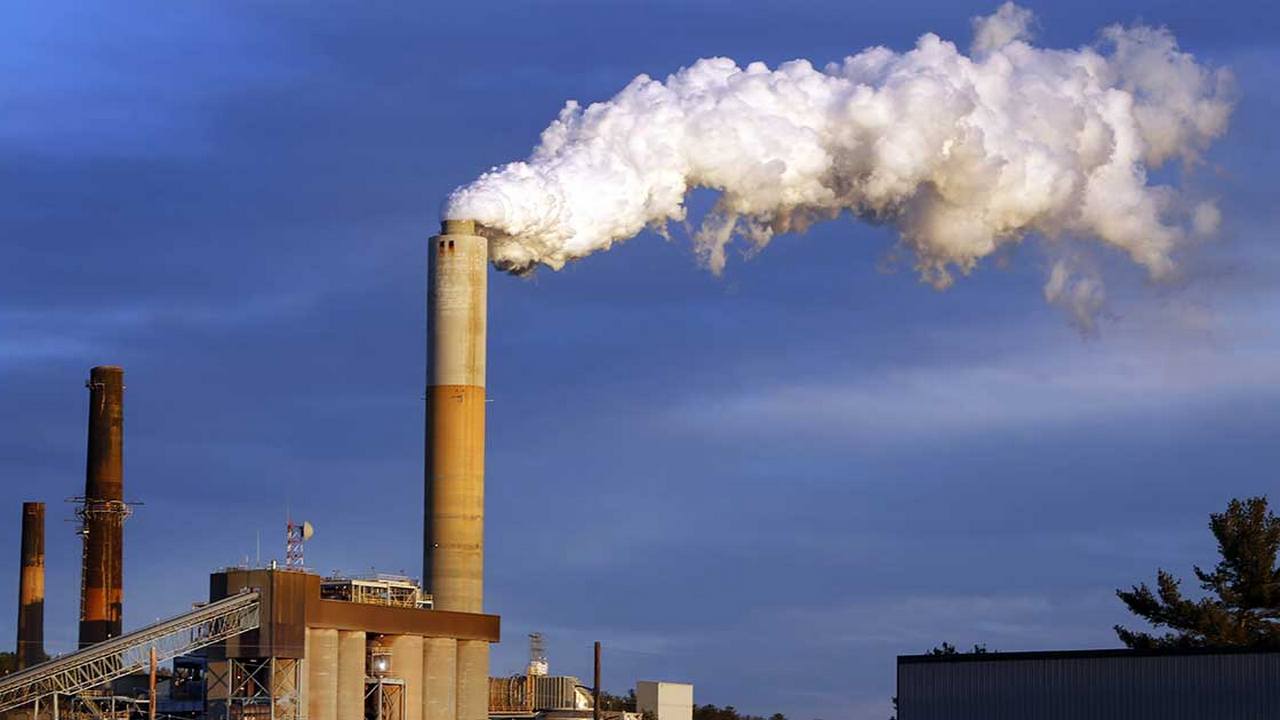When the
Paris agreement was signed, all participating nations agreed to make an effort to deal with climate change and its effects. They also agreed to help and support developing countries to do the same. They set a goal to limit the rise in global temperature to 1.5 degrees Celsius. In
2010, scientists warned that we had already built enough carbon ejecting infrastructure that would push the global temperatures to 1.3 degree Celsius. In a follow up to this story, the same scientists have
pre-published a new study in the journal Nature that states that we will soon be well past the Paris agreement’s prescribed limit even if we stopped using coal power plants, factories, or vehicles right this very minute. However, with all the plants that are under construction and others that are still being planned, we might shoot past 2 degrees Celsius. [caption id=“attachment_6800371” align=“alignnone” width=“1280”] A coal-fired power plant. Image credit: Wikipedia/ PDTillman[/caption]
What would happen if the temperature increases above the limit?
The Intergovernmental Panel on Climate Change (IPCC) has released a report that answers that question. It explains the difference that the 0.5 degree Celsius will make for the climate and the planet. At 1.5 degrees, about 14 percent of the population will face extreme heat, the number will increase to 37 percent when the temperature rises. At two degrees Celsius, once every ten years will be an ice free summer, and sea levels will rise by 0.46 meters. Sixteen percent of plant life and 18 percent of insect species will be lost when temperatures hit the 2-degrees mark. Almost 100 percent of the coral reefs will have disappeared. These are just some of the drastic effects of a rise in temperature.
What are the major contributors of these carbon emissions?
Power plants that run on coal and fossil fuels. This study also looks at the emissions from electricity, energy, transport, residential, and commercial infrastructure from 2018. To understand the gravity of the situation, coal power plants have a lifespan of 40 years and in that time one plant will emit millions of tons of carbon. If we add up all the active plants and the ones that are in the process of being built, the numbers can be staggering. [caption id=“attachment_6924891” align=“alignnone” width=“1280”] Global Greenhouse gas emission form the economic sector. Source IPCC[/caption] Carbon gets soaked up by the oceans and forests, but a lot of it is still trapped in the Earth’s atmosphere. That excess carbon has been produced over a long period of time, and along with the other greenhouse gases, causes global heating. The problem is that while countries like the US have done disproportionate harm to the environment (relative to its population size) in the past, countries like the US are moving to greener means of energy production. They can do this because their existing coal-fired infrastructure is old and replacements are inevitable. Since they’re inevitable, they might as well be green. In developing countries like China and India, which have seen rapid growth, coal-fired plants are relatively new and will continue to operate for decades, adding to carbon emissions at scale over the next 20-30 years. In effect, China’s emissions alone comprise over 41 percent of expected emissions. The US and India are expected to contribute nine percent each.
What do we do next? How do we solve this? Is there even a solution?
This study has not included emission calculations from agriculture, deforestation and other
land uses that contribute 24 percent of total emission today. Because it does not include all sources of carbon emissions,
an article from National Geographic has termed the report as ‘conservative rather than alarmist.’ But there are solutions and they are geo-engineered. That means they are projects that tackle environmental problems. Tackling climate change and carbon emissions are their major focus. e.g. There are plants that are
sucking the carbon dioxide from the air like this one in
Switzerland, which sucks up tonnes of CO2 and uses it to grow vegetables. [caption id=“attachment_6924911” align=“alignnone” width=“1280”] Representational image. Credit: Pixabay[/caption] There are also some studies that found ways to use existing
air conditioners to capture carbon or
**to make oil** . All these technologies are still in their infancy. They are being conducted on small scales and the cost is still very high. To ensure that we are not going to cross that 1.5-degree mark, we need a solution that is easily accessible and inexpensive. Technologies that even developing and third world countries can use.


)
)
)
)
)
)
)
)
)



